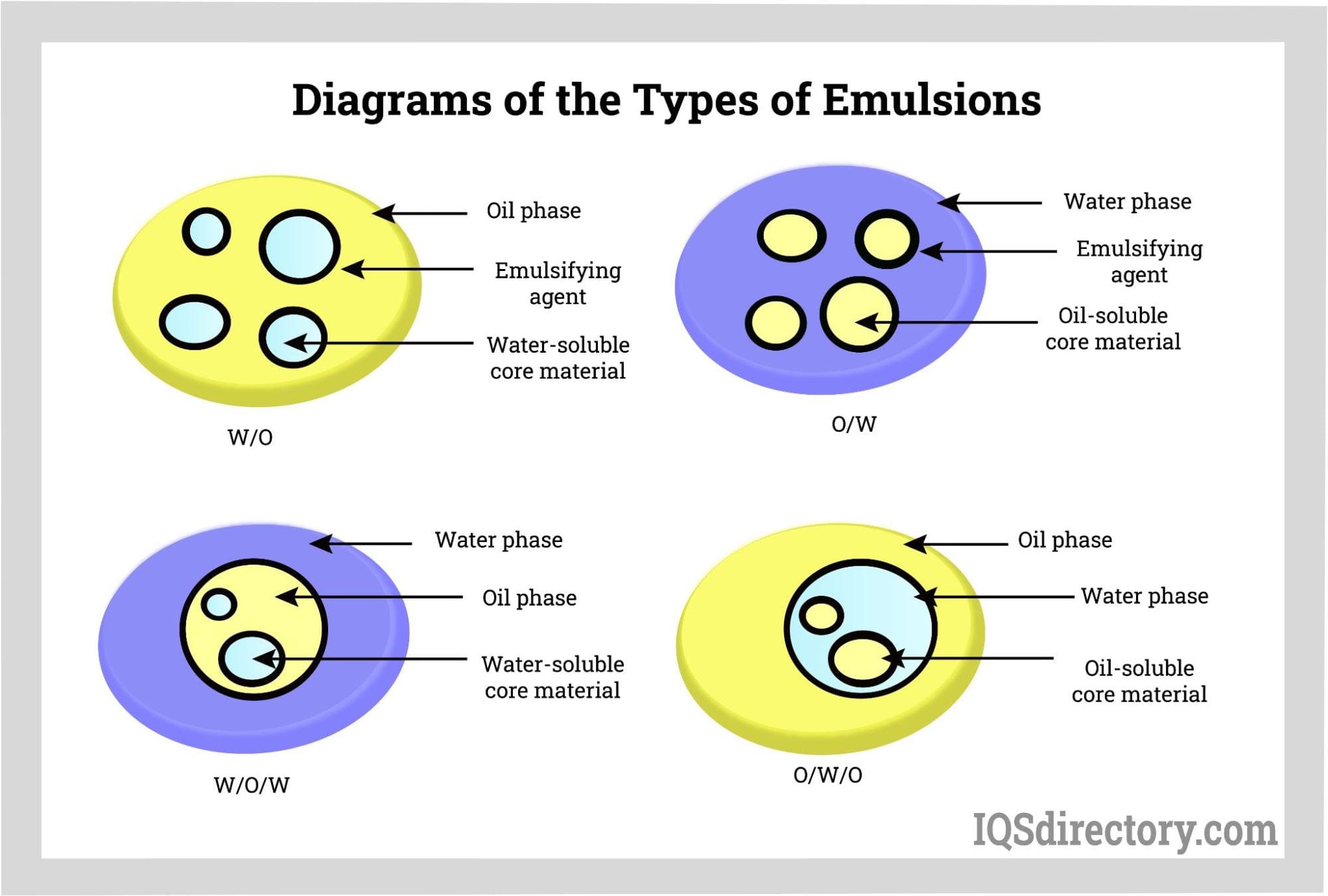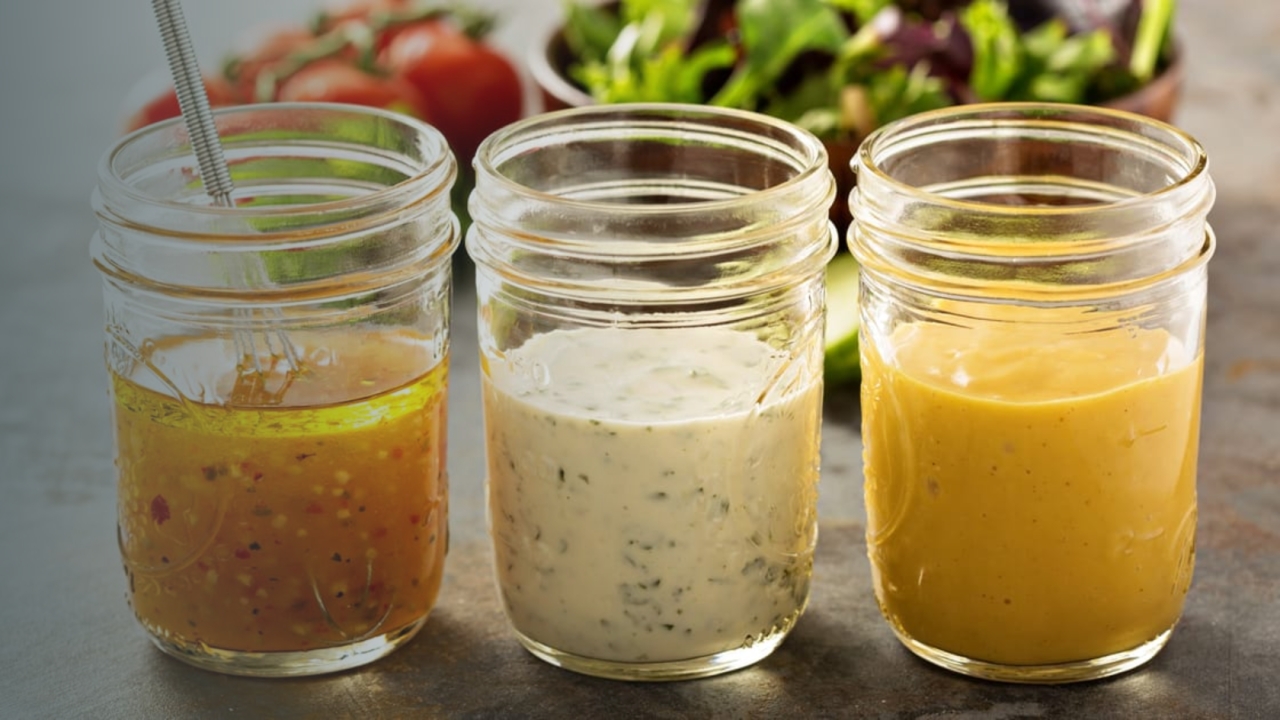Everything You Need to Know About Emulsifiers in Ice Cream
Everything You Need to Know About Emulsifiers in Ice Cream
Blog Article
The Scientific research Behind Emulsifiers and Their Value in Modern Production
Emulsifiers play a vital function in contemporary manufacturing, serving as the unrecognized heroes that blend oil and water for a vast array of products. You might not understand exactly how these compounds boost appearance and security, but their impact is substantial across industries. As consumer preferences change in the direction of cleaner labels, the need for ingenious emulsifiers is expanding. What does this mean for the future of item formulation? Allow's check out even more.
What Are Emulsifiers?
Emulsifiers are important representatives worldwide of food and product manufacturing, working as the glue that binds 2 otherwise immiscible fluids, like oil and water. You might not understand it, however these substances play a crucial duty in creating secure mixes. They lower the surface stress between these liquids, permitting them to blend effortlessly. Common examples consist of lecithin found in egg yolks and soybeans, and mono- and diglycerides utilized in numerous processed foods.

When you whip up a salad dressing or indulge in a velvety treat, emulsifiers help preserve that best appearance. They assure your products have a consistent mouthfeel and look, boosting your overall experience. Without emulsifiers, numerous foods would separate, causing unwanted textures and flavors. Next time you take pleasure in a smooth sauce or spread, keep in mind the unrecognized heroes-- emulsifiers-- that make it all feasible.
The Chemistry of Emulsification
When you blend oil and water, you could observe they do not mix conveniently; that's where the chemistry of emulsification enters play. Emulsification occurs when tiny beads of one fluid disperse in another, creating a stable mixture. This takes place due to the fact that oil and water are immiscible as a result of their differing polarities-- water is polar while oil is non-polar. To overcome this obstacle, emulsifiers are used.
These particles have a hydrophilic (water-attracting) head and a hydrophobic (water-repelling) tail. When you add an emulsifier, its particles position themselves at the oil-water interface, minimizing surface stress and enabling the droplets to mix. The emulsifier forms a protective layer around each droplet, preventing them from coalescing back right into different layers. Recognizing this chemistry is crucial for accomplishing stability in items like dressings, lotions, and sauces, making emulsification crucial in contemporary manufacturing.
Types of Emulsifiers
Different sorts of emulsifiers play essential functions in stabilizing combinations of oil and water. You'll typically encounter two major classifications: natural and synthetic emulsifiers. All-natural emulsifiers, like lecithin from egg yolks or soy, are originated from plants and pets, making them prominent in food items. They're typically thought about more secure and healthier alternatives.
On the various other hand, artificial emulsifiers, such as mono- and diglycerides, are chemically engineered to improve security and service life. They're frequently used in processed foods and cosmetic items.
Additionally, you might encounter non-ionic, anionic, and cationic emulsifiers, each with one-of-a-kind residential properties that affect their performance. Non-ionic emulsifiers, as an example, work well in a large range of pH degrees, while anionic emulsifiers tend to carry out better in alkaline conditions. Comprehending these types can aid you pick the right emulsifier for your particular application.
Devices of Emulsion Formation
Recognizing exactly how emulsions develop is vital for producing stable mixtures of oil and water. When you present an emulsifier, it lowers the surface area stress between the two liquids, allowing them to mix even more quickly.
The emulsifier molecules have a hydrophilic (water-attracting) head and a hydrophobic (oil-attracting) tail. When you add an emulsifier, these molecules prepare themselves at the oil-water user interface. The hydrophilic heads communicate with water, while the hydrophobic tails secure into the oil. This develops an obstacle that stabilizes the beads, preventing them from integrating.
Applications of Emulsifiers in Different Industries
Emulsifiers play an important duty across numerous industries, making your preferred foods smoother and much more delightful. In cosmetics, they improve item structure and security, ensuring a positive application experience. Plus, in drugs, they help provide important components properly, enhancing general efficiency.
Food Sector Utilizes
While you might not realize it, emulsifiers play an essential function in the food sector, enhancing the structure, security, and life span of many products (Emulsifiers). They're generally found in salad dressings, sauces, and mayo, aiding to blend oil and water for a smooth, consistent item. In baked goods, emulsifiers enhance dough handling and maintain dampness, resulting in a much better appearance and prolonged quality. They're also essential in milk items, where they maintain solutions in lotions and gelato, avoiding separation. Even in snacks, emulsifiers assist keep crunchiness and prevent stale flavors. By making sure harmony and top quality, emulsifiers are significant to delivering the delicious items you enjoy each day, making them an essential component in contemporary food manufacturing.
Cosmetic Formulas Benefits
When it concerns cosmetic solutions, emulsifiers are crucial for producing products that really feel lavish and do successfully. They assist mix oil and water, making certain a smooth and secure consistency in creams, creams, and products. You'll notice that emulsifiers boost item security, preventing splitting up and lengthening life span. This suggests you can appreciate your favorite cream without bothering with it spoiling too rapidly. Additionally, emulsifiers boost the application experience, enabling for even distribution and far better absorption right into the skin. By utilizing emulsifiers, you also attain an even more attractive appearance, making your cosmetics really feel wonderful on your skin. Overall, emulsifiers play an important duty in delivering high-quality cosmetic items that meet your appeal needs.
Drug Applications Summary
In the pharmaceutical industry, emulsifiers are important for developing efficient medications. You'll find emulsifiers in various dosage forms, like creams, lotions, and fluid suspensions, enhancing the bioavailability of drugs.
The Impact of Emulsifiers on Product Quality

By ensuring stable emulsions, you decrease the danger of wasting and prolong service life, eventually conserving you money and time. You'll likewise discover that emulsifiers can enhance the bioavailability of energetic components in your items, making them extra reliable for customers.
Moreover, they allow you to create innovative formulations that meet varied customer demands. Whether you're crafting a velvety clothing or a lavish cream, emulsifiers are necessary view it now for attaining the preferred results. In other words, by understanding and leveraging the impact of emulsifiers, you can significantly elevate the quality check out this site of your items.
Future Patterns in Emulsifier Advancement
As the demand for cleaner tags and sustainable products climbs, the advancement of new emulsifiers is readied to advance significantly. You'll observe a change towards plant-based and all-natural emulsifiers, driven by customer preferences for active ingredients that are eco friendly and less refined. Developments in biotechnology will likely improve the capability and effectiveness of these emulsifiers, enabling producers to develop steady formulas with fewer ingredients.
You may additionally see a rise in multifunctional emulsifiers that not only maintain emulsions yet likewise boost flavor, appearance, or nutritional worth. This pattern can simplify active ingredient listings while improving product efficiency.
Additionally, with advances in nanotechnology, emulsifiers might be engineered at the molecular level to accomplish unprecedented stability and efficiency. Emulsifiers. As you check out these patterns, you'll discover that the future of emulsifier growth is not practically performance, yet also regarding welcoming sustainability and transparency in components
Regularly Asked Questions
Are Emulsifiers Safe for Usage in Food Products?
Yes, emulsifiers are generally risk-free for intake in food products. They've been thoroughly researched and accepted by food security authorities, so you can appreciate your favorite foods without fretting concerning their impact on your health and wellness.
Can Emulsifiers Be Derived From Natural Resources?
Yes, you can the original source derive emulsifiers from natural sources. Components like lecithin from egg yolks or soybeans and casein from milk prevail. These all-natural emulsifiers help support combinations without artificial additives, making them popular in various products.

Just How Do Emulsifiers Affect Life Span of Products?
Emulsifiers stabilize blends, preventing separation and perishing - Emulsifiers. By maintaining harmony, they expand products' rack life, ensuring freshness and top quality. You'll notice that emulsifiers aid keep your preferred foods and cosmetics performing well over time
What Are Prospective Negative Effects of Emulsifiers?
You might experience digestive system problems when consuming items with emulsifiers, as they can disrupt digestive tract microorganisms. Some studies suggest prospective web links to swelling or allergic reactions, but much more research study is required to totally understand these effects.

Are There Alternatives to Traditional Emulsifiers?
Yes, there are choices to conventional emulsifiers. You can discover options like all-natural gum tissues, starches, or lecithin. Each different offers special residential properties, so experiment to find what works best for your details application.
Report this page